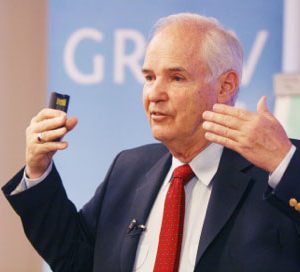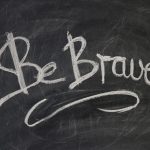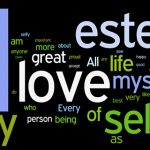 Who are you?
Who are you?
That’s such a big question!
Self-awareness, however, is everything you can say about yourself by answering to this question with no fear.
You got it: with no fear.
Self-awareness starts when the fear of knowing ourselves ends, together with our beautiful imperfections. Somebody told me once that it’s our imperfections that make us one and only one. If we all were perfect, we’d be smooth gears and we’d slide one over the other. It is our imperfections that fit together with the others’, creating as a result the marvelous gear of relationship. Self-awareness allows us then to just not recognize who we are, but with some good training it also helps us synchronize with whoever is in front of us, know, recognize, appreciate and thank them (mentally, maybe) for giving us one more tile toward self-awareness.
Attention means one thing exclusively.
Awareness is a very different thing; it is not exclusive.
It is not paying attention, it is being attentive; it is just being conscious.
You are conscious when you are inclusively conscious.
From a system perspective, self-awareness is structured on the basis of the messages we send to the world and the feedbacks it gives us back. Ever heard the expression “know yourself to know others”? Donald Winnicott would say: “there is no baby without a mother and no mother without a baby”. We are all interconnected by relational boundaries in dynamic evolution, unique and unrepeatable, but mainly aware.
Self-awareness is the first great step to give a meaning to our place in the world. Affording the opportunity to know yourself is a gift. In fact, being self-aware lets us recognize the quality, as well as the possibility of the here and now; self-awareness prepares to face what comes out in the path: behaviors, attitudes, situations, relationships. In a system evolving constantly, arresting the process of change would be an utopia, but we could try at least to manage it. How? First of all, by being coherent with ourselves. And being coherent with ourselves mainly means being (self) aware.
How can we reach Self-awareness?
Consistent with my first question, self-awareness is built on the basis of a subject and a verb: I am.
An expression that comes from the Bible, which I find one of the most beautiful and complete manual of psychology, independently of the religious orientation. “I am” is used to define oneself within the Creation. Self-awareness arrives when you succeed in defining yourself within the world, the system, the context you live and that recognizes your existence.
Who are you? What will your verse be?
Self-awareness starts from the observation of ourselves, as if we visualized ourselves through the five senses, by suspending judgement, recognizing our needs, our fears, our tastes or preferences, our values and talents, our emotions and giving them a name. It’s called “emotional alphabetization”, consisting in the ability “to give a name”, indeed, to what we feel: to our emotional state.
Speaking of “giving a name”, let’s try an exercise:
- Smile.
- Self-awareness starts from the name. Think about your own name. Focus on it intensely. It’s your name. I know, other people have your same name, but the one you’re thinking of only refers to you. It’s you. The one and only You.
- Smile.
- Now add “I am” before your name. Taste the thought, give a meaning to this sentence. Do you know the meaning of your name? Self-awareness needs knowledge and meanings. Meanings!
- And now, let’s make your thoughts come out. Pronounce your name (it would be better if you did on your own, or you’ll notice people looking at you suspiciously). Just your name.
- Add “I am” as you did earlier. Come on! Do it aloud!
- Smile (Are you smiling?). Self-awareness is strengthened by positive feelings. Strengthen it. Make an effort.
- Put your hands in front of your mouth now. One hand next to the other, with your palms facing yourself. The best distance is the one that makes you look at your hands without crossing eyes.
- Pronounce your name.
- “I am” and your name.
- This is your verse,
- Are you feeling yourself? Are you listening to yourself? That’s you. That’s just you. Welcome!
This is your self-awareness or, at least, its beginning!


 Share On Facebook
Share On Facebook Tweet It
Tweet It



























